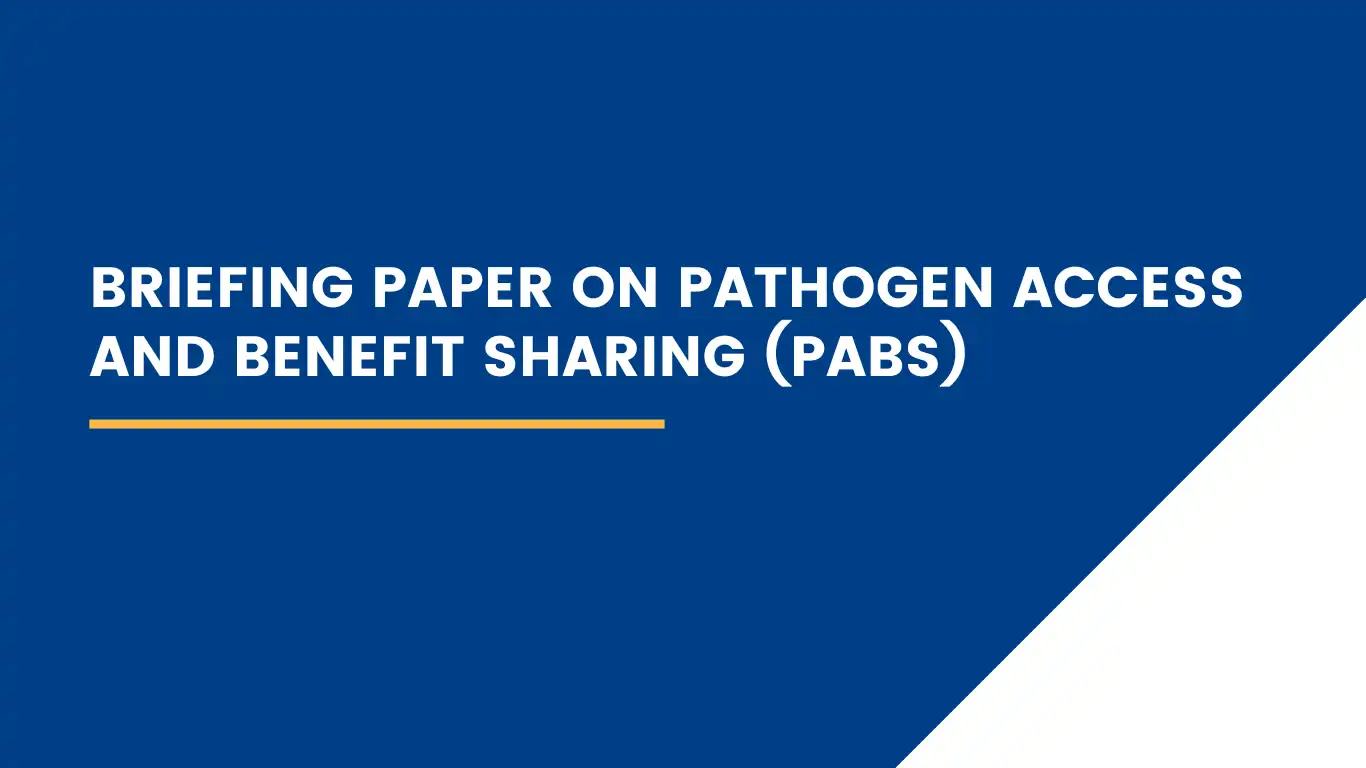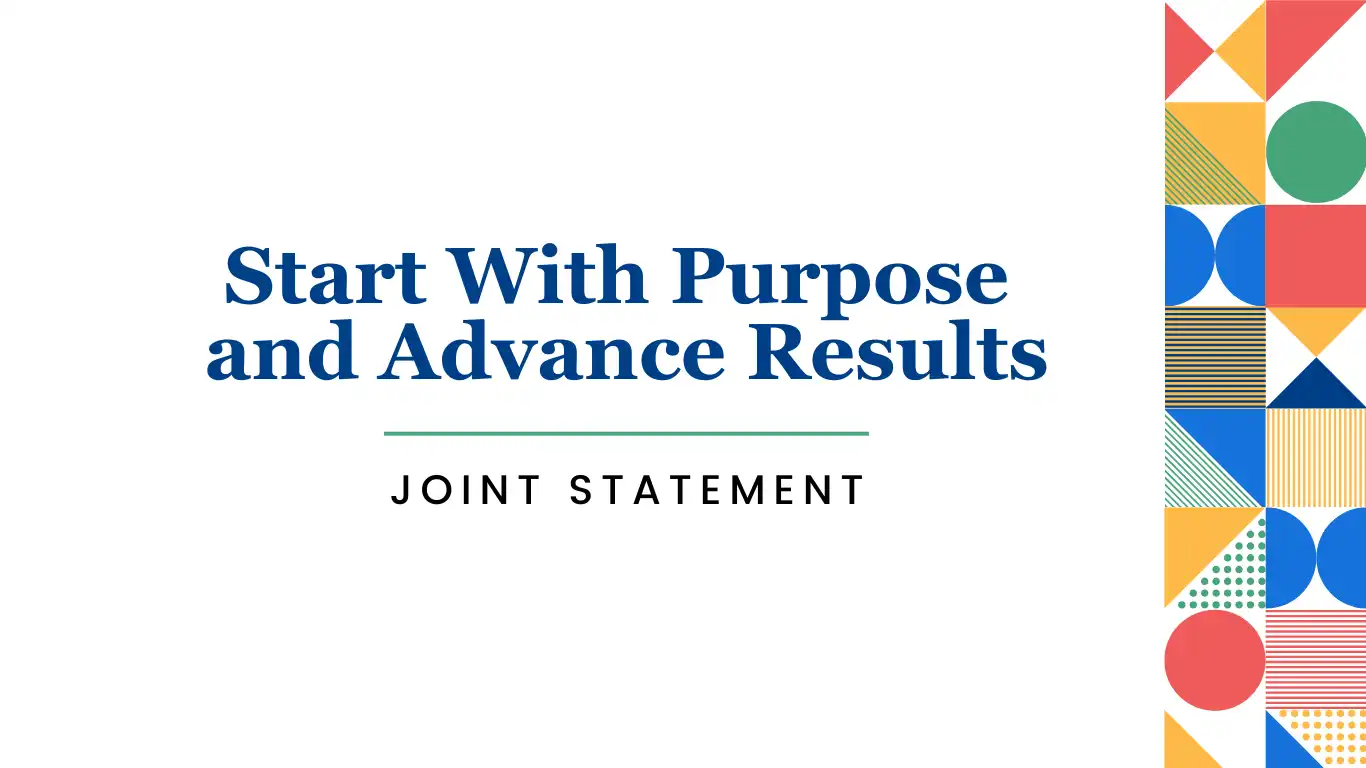As we enter year three of this pandemic, COVID-19 is having a global field day. The virus is taking advantage of our failure as an international community to end this crisis. Cases are once again rising exponentially and hospitals are overflowing. Let us be clear: this is not a health crisis. This is a crisis of leadership and political will.
Yes, world leaders have a lot of competing and compounding crises on their policy plates. Climate change. Addressing inflation, economic instability, and broken supply chains. Cybersecurity. Political instability and conflict. Escalating economic inequality. Raging misinformation and disinformation. The list goes on and on. But as world leaders begin to tackle their own new year’s resolutions, there is one that must rise to the top of their list: End the COVID-19 crisis for everyone, everywhere, once and for all.
It’s tempting given the magnitude of all of these challenges — paired with pandemic fatigue — for political leaders to focus on other issues. That is foolish. There is no pandemic exit strategy for any country without a global strategy. There is no sustained economic recovery without ending this pandemic. There is no prospect of bridging social divides when the pandemic continues to prey on the most vulnerable and marginalized populations. There is no hope of strengthening health systems when we are burning out a generation of health workers. There is no winning when people are dying needlessly every single day.
Every day we let this pandemic continue is a day where we lose the opportunity for meaningful progress on other challenges to humanity.
Here are five things world leaders must-do in 2022 to end the COVID crisis.
1. Make a plan to end this crisis for everyone. It is unfathomable that we still don’t have a global plan of action for this pandemic. We have been calling for this since mid-2020. We call on world leaders to pull together to create a war room, modeled on a Global Health Threats Council suggested by The Independent Panel for Pandemic Preparedness and Response and backed by the G20 which needs to be truly global. Leaders should craft a plan, define leadership, and execute the plan.
2. Vaccinate the world. High-income countries are attempting to boost their way out of danger while still hoarding vaccine doses. Meanwhile, only 9.5% of people in low-income countries have received at least one dose. And, only one in four healthcare workers in Africa have been fully vaccinated. World leaders: Do whatever it takes to vaccinate the world to 70% by the middle of 2022. Invest in vaccine delivery and education, accelerate promised vaccine dose donations, and swap slots to put low- and middle-income countries at the front of the queue. Publish vaccine contracts, production schedules and pricing to give the public total transparency. “This is within reach, but only if a life in Mumbai matters as much as a life in Brussels, if a life in Sao Paulo matters as much as a life in Geneva, and if a life in Harare matters as much as a life in Washington DC,” said Dr. Ayoade Alakija, WHO Special Envoy for the ACT-Accelerator.
3. Pandemic-proof the planet. Leaders must end this crisis and prevent the next outbreak from turning into a pandemic on a parallel path. We call on world leaders to seize this opportunity to leave a legacy of a healthier and safer world — starting with the establishment and funding of a new global financing mechanism that provides robust and sustained investments in pandemic prevention and preparedness. History has shown that if action is not taken during a crisis, then political will dissipates once the crisis fades from view.
4. Get ahead of the next variant and next disease. What happens when new variants don’t hold up to vaccines or a new disease emerges and we don’t have the research and technology at the ready as we did relative to SARS-CoV-2? We are already experiencing some of this with Omicron — but the next disease could be more deadly. We call on world leaders to make pandemic-related investments a priority now and for the long-term so that every country has a plan, and we can get in front of new variants, diseases, and potential outbreaks. Now is the time to invest in moonshot approaches such as CEPI’s mission to develop pandemic-beating vaccines in 100 days.
5. Elevate pandemic preparedness and response as a leadership priority always. The persistent COVID-19 crisis along with resulting and compounding crises demonstrate that pandemics cut across global economics, personal livelihoods, global security, national security, and individual security. This is a crisis of leadership which demands better and more accountable systems for governing pandemics. It’s time to codify pandemic preparedness and response on leadership agendas at the highest levels. Heed the recommendations of The Independent Panel for Pandemic Preparedness and Response and establish a high-level Global Health Threats Council.
The year ahead is a tipping point in this crisis. In the cycle of “panic and neglect,” unbelievably we are teetering on neglect. World leaders have done a lot of things to respond to this crisis — denying it, wishing it away, looking around it, pretending it is over or can be managed within their own borders. Why are leaders unable, or unwilling to make the obvious connections?
World leaders: own this resolution. This year, do whatever it takes to end this crisis — and prevent another deadly and costly pandemic from happening again.



